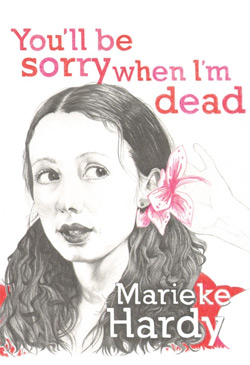The Weekend Australian book review: ‘Trust Me, I’m Lying’ by Ryan Holiday, November 2012
A book review published in The Weekend Australian on November 3. The full review follows.
“My job is to lie to the media so they can lie to you,” 25-year-old Ryan Holiday writes on the first page of his first book. “I cheat, bribe, and connive for bestselling authors and billion-dollar brands and abuse my understanding of the internet to do it.”
It’s a frank admission from the marketing director of Los Angeles-based clothing company American Apparel, and one that sets the tone for an explosive insight into new media manipulation.
Trust Me, I’m Lying documents Holiday’s consistent exploitation of online publishers – from small-fry blogs to the websites of national media outlets – in the name of publicising his client list, which also includes Tucker Max, a popular American author whose stories centre on binge drinking and sexual debauchery.
By revealing his tactics and explaining his strategies, Holiday exposes the blog-led model of “pageview journalism” as a vapid and desperate sham.
Though this book concentrates on American websites such as the Huffington Post and Gawker, its message is relevant to all online publishers. Holiday describes his mission “to rip back the curtain and expose a problem that thus far everyone else has been too intimidated or self-interested to discuss openly”. Namely, the web is “hopelessly broken”:
The economics of the internet created a twisted set of incentives that make traffic more important – and more profitable – than the truth. With the mass media – and today, mass culture – relying on the web for the next big thing, it is a set of incentives with massive implications.
This economy – in which websites and blogs simply need traffic to sell advertisements, and where a perusing reader and accidental click are one and the same – leads the incessant hunger for new content. By design, this is a situation ripe for exploitation, as the income of many bloggers depends on their page views.
“It’s a great time to be a media manipulator when your marks actually love receiving PR pitches,” Holiday notes.
The first half of this book is devoted to how blogs work or, as Holiday describes it, “feeding the monster”. In an apparent nod to his mentor Robert Greene, author of The 48 Laws of Power, Holiday outlines nine tactics, such as “give them what spreads, not what’s good” and “use the technology against itself”.
These are all valid tactics that Holiday has used when promoting his clients. However, he notes some readers may be tempted to use them as an instruction manual for manipulation of their own. “So be it,” he writes. “You will come to regret that choice, just as I have. But you will also have fun, and it could make you rich.”
In the second half of the book, “The monster attacks”, Holiday ruminates on what blogs mean. He takes a blade to press-led online extortion, iterative journalism (one top blogger is quoted as saying “getting it right is expensive, getting it first is cheap”), the sad truths of “snark” writing and “online entertainment tactics that drug you and me”.
This book is essential reading for anyone working in the media, online or off, and also for those who want to understand how the PR industry influences what appears on screens, in newspapers and magazines, and over airwaves. Marketers and the media are increasingly on the same team; this book is something of a wake-up call.
“The world is boring, but the news is exciting,” Holiday writes. “It’s a paradox of modern life. Journalists and bloggers are not magicians, but … you must give them some credit. Shit becomes sugar.”
Similarly, it is a credit to the author’s writing style and analytical abilities that this book never becomes weighed down in media theory. Every point is backed up with penetrating personal anecdotes.
The narrative is tied to a rich understanding of media history, all the way back to the street vendor “cash and carry” innovation of New York newspaper The Sun in 1833, which is eerily similar to the gaudy, attention-grabbing media model of 2012.
Holiday is incisive and merciless. It is clear he has the perceptiveness and wherewithal to turn his still-nascent career into a fortune from advising the rich and powerful, yet this book is a step back from that dark art. In the introduction, he writes of his hope that, by exposing these vulnerabilities in the media system, they’ll no longer work as well. We’ll see about that.
Trust Me, I’m Lying: Confessions of a Media Manipulator
By Ryan Holiday
Portfolio, 272pp, $26.95 (HB)
Andrew McMillen is a Brisbane-based freelance journalist.
For more on Trust Me, I’m Lying, visit its website. You might also be interested in my interview with Ryan Holiday from October 2011.
